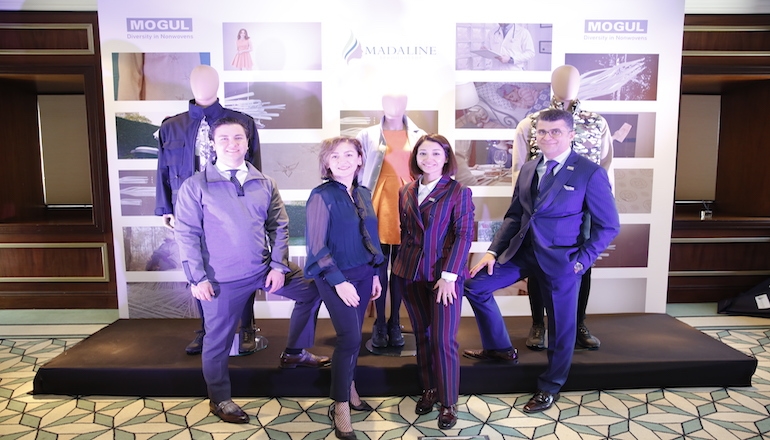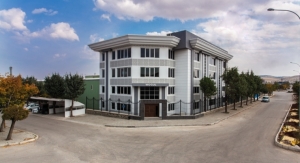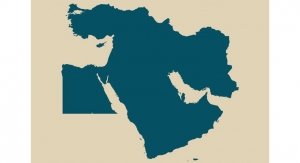11.29.17
Mogul recently celebrated its 20th anniversary with a special event touting its new hybrid nonwovens technology Madaline and its potential to target new markets for nonwovens in areas such as apparel and automotives. The event featured a fashion show of creations by well-known Turkish fashion designer Arzu Kaprol
‘We envisage revolutionizing markets, from apparel to automotive, with smart fabrics produced from microfilaments," says C. Enver Kayali, deputy chairman of Mogul's board adding that he expects Madaline to bring important changes and developments to many markets.
With production facilities in Luleburgaz and Gaziantep in Turkey and South Carolina in the U.S., Mogul produces seven different types of nonwovens. From its beginning in 1997, Mogul was focused on differentiating Mogul with new technologies and products.
"Our wide product range is based on leading technologies which supports us in global markets with innovative technical textiles. During development of techniques and technologies we have always given priority to health and the environment." Kayali says. "Our microfilament fabric uses no solvents, binders nor PVC in its production. Water consumption and carbon emissions are minimal and the finished fabric is lint-free which means there is no carry-off into the wash water of synthetic particles to pollute our waterways. We aim to reduce our footprint and impact on our environment."
Mogul's latest development, Madaline, is a microfilament fabric with a dense web enabling it to provide good barrier and filtration properties. The entanglement of very fine microfilaments provides extensive surface area and the micro-channels allow the fabric to be absorbent, breathable and capable of transporting perspiration away from the skin. It is durable and has a long-life yet is lighter and more quick to dry than conventional fabrics Madaline is a natural barrier against bacteria and microscopic particles therefore its application includes antiallergic products and medical use. Also, its high-tech cleaning performance matches the hygienic cleaning requirements of operating rooms, intensive care units and other areas of a hospital.
"We bring a strong contender to the textile sector for an alternative fabric," says CEO Serkan Gogus. "Our manufacturing goals are implementation of ‘Industry 4’ levels of production optimization. From raw material input to finished fabric, the process is continuous and without human intervention. Manufacturing and quality assurance are monitored through camera and information technology systems."
Conventional textile manufacturing can process yarn into fabric from a few hours up to a few days. Madaline processes raw material into fabric within three to four minutes. Madaline brings unbelievable speed, efficiency and flexibility which are beneficial features for the apparel and textile sectors. Together with cost savings, easy fabrication and converting and as a health-conscious fabric, Madaline offers valuable opportunities to entrepreneurs.
Madaline sets sail for new horizons in fabric and fashion.." Kaprol adds. "As a new technology and unique material which is easy to convert, it is an important alternative for the ready-to-wear apparel and textile industries. The ‘Mogul Collection’ we prepared illustrates how exciting, in terms of the fiber technology and scale of production, this product is."
‘We envisage revolutionizing markets, from apparel to automotive, with smart fabrics produced from microfilaments," says C. Enver Kayali, deputy chairman of Mogul's board adding that he expects Madaline to bring important changes and developments to many markets.
With production facilities in Luleburgaz and Gaziantep in Turkey and South Carolina in the U.S., Mogul produces seven different types of nonwovens. From its beginning in 1997, Mogul was focused on differentiating Mogul with new technologies and products.
"Our wide product range is based on leading technologies which supports us in global markets with innovative technical textiles. During development of techniques and technologies we have always given priority to health and the environment." Kayali says. "Our microfilament fabric uses no solvents, binders nor PVC in its production. Water consumption and carbon emissions are minimal and the finished fabric is lint-free which means there is no carry-off into the wash water of synthetic particles to pollute our waterways. We aim to reduce our footprint and impact on our environment."
Mogul's latest development, Madaline, is a microfilament fabric with a dense web enabling it to provide good barrier and filtration properties. The entanglement of very fine microfilaments provides extensive surface area and the micro-channels allow the fabric to be absorbent, breathable and capable of transporting perspiration away from the skin. It is durable and has a long-life yet is lighter and more quick to dry than conventional fabrics Madaline is a natural barrier against bacteria and microscopic particles therefore its application includes antiallergic products and medical use. Also, its high-tech cleaning performance matches the hygienic cleaning requirements of operating rooms, intensive care units and other areas of a hospital.
"We bring a strong contender to the textile sector for an alternative fabric," says CEO Serkan Gogus. "Our manufacturing goals are implementation of ‘Industry 4’ levels of production optimization. From raw material input to finished fabric, the process is continuous and without human intervention. Manufacturing and quality assurance are monitored through camera and information technology systems."
Conventional textile manufacturing can process yarn into fabric from a few hours up to a few days. Madaline processes raw material into fabric within three to four minutes. Madaline brings unbelievable speed, efficiency and flexibility which are beneficial features for the apparel and textile sectors. Together with cost savings, easy fabrication and converting and as a health-conscious fabric, Madaline offers valuable opportunities to entrepreneurs.
Madaline sets sail for new horizons in fabric and fashion.." Kaprol adds. "As a new technology and unique material which is easy to convert, it is an important alternative for the ready-to-wear apparel and textile industries. The ‘Mogul Collection’ we prepared illustrates how exciting, in terms of the fiber technology and scale of production, this product is."







